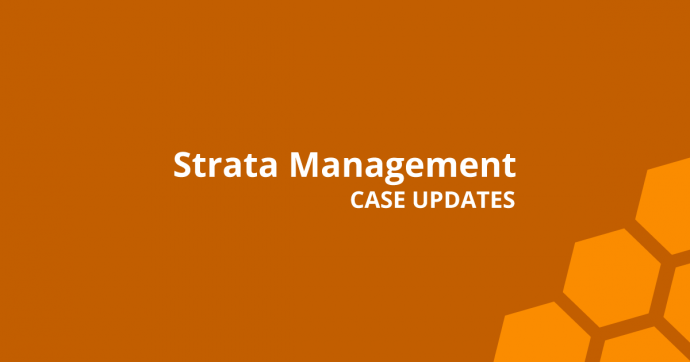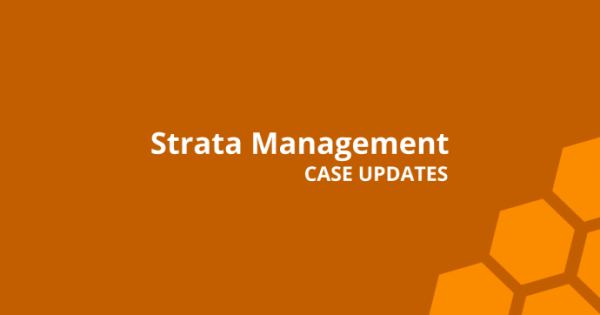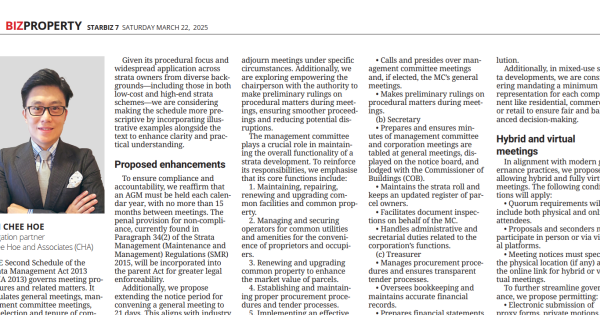
YII SING CHIU v AIKBEE TIMBERS SDN BHD & 2 ORS [KUALA LUMPUR HIGH COURT ORIGINATING SUMMONS NO: WA-24NCVC-2452-12/2020] [UNREPORTED]
Facts:
The Plaintiff is an owner of a condominium unit of a mixed development known as Pearl Suria (“Development”) whereas the 1st Defendant (“D1”), 2nd Defendant (“D2”) and 3rd Defendant (“D3”) are respectively the developer, carpark owner and the Management Corporation of the Development. The Development comprises of service apartments, retail commercial units and parking lots wherein each unit is further divided into different shares units.
The Plaintiff brought an action against D1, D2 and D3, claiming that the imposition of different maintenance fees and charges to sinking fund between the apartment units and commercial units at the Development is illegal and in defiance to Schedule 1 of the Strata Management Act 2013 (“SMA 2013”).
Decision of the High Court:
In a rather succinct ruling, the High Court struck out the Plaintiff’s claims against all the Defendants and held that it is not illegal for D1 being the developer to impose different rate of charges for the different category of units pursuant to section 9 (1) and 2(a), (b) of the SMA 2013, notably, the power to maintain and manage would have included the power to demarcate and identify different use of building, thus different rate of charges. Further, the High Court also held that the Plaintiff is bound by the terms of the Sale and Purchase Agreements which have given D1 rights for such imposition of different charges for different category of units.
Similar statutory power is also extended to D3 being the Management Corporation to determine and impose charges as it deems fit under section 59 of the SMA 2013 despite there being no contractual relationship between D3 and the Plaintiff.
This decision was later reversed by the Court of Appeal.
TAKEAWAY
The decision in Yii Sing Chiu runs against the Court of Appeal decision in Muhamad Nazri Muhamad v JMB Menara Rajawali & Anor [2019] 10 CLJ 547, where it was ruled that JMB is not allowed to impose different rate of charges as it would run counter to the legislative framework of SMA 2013, which is intended to avoid discriminatory practice in determining Charges. In a similar vein, the same principle ought to be applicable to developer as well and MC.
In Yii Sing Chiu, The High Court did not adopt the Plaintiff’s argument in respect of the ruling in Rajawali, i.e. to extend the social legislation principle to Developer and MC. In respect of the Developer, such power to impose different rate of charges is said to be dichotomised into contractual and statutory power. Separately, although the High Court is silent on such express power of MC to impose different rate of charges, but that power is implicit pursuant to Section 60 (3) of the SMA 2013 as argued by the MC.
In other decisions however, Amity One Sdn Bhd v. Binjai Residency Management Corporation [2021] 1 LNS 189, the High Court has extended the effect of Rajawali to MC as duties and powers imposed upon a MC under sections 52 and 59 of SMA 2013 are similarly to those imposed upon a JMB under sections 21 and 25 of SMA 2013. The same sentiment is also shared by another High Court case in Sodalite Sdn Bhd & Others v 1 Mont’ Kiara Dan Kiara 2 Management Corporation & Others [2021] 7 CLJ 633, which held that MC has no power to impose different rate of charges because SMA 2013 is intended as a social legislation. The same principle is also found in the case of SCP Assets Sdn Bhd v. Perbadanan Pengurusan PD2 [2021] 1 LNS 536 where the High Court held that MC is not allowed to impose or levy different rates of service charges or sinking fund contributions in respect of different parcel owners for the same type of use of the parcels and section 60(3)(b) SMA 2013 shall not be given a wide interpretation.
The current position is clear that developer, JMB and MC are not allowed to charge multiple rates in a mixed development for different category of parcel, save wherein that MC is limited by section 60(3)(b) of the SMA 2013, such that it is only allowed to impose or levy different rates of service charges for parcels which are used for significantly different purposes or provisional blocks.


